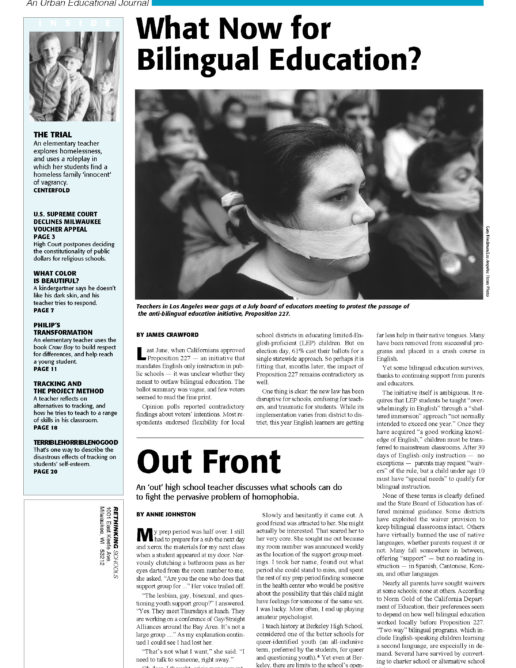Preview of Article:
Trivial Pursuit Testing
An education professor takes the Massachuesetts teacher certification test. His conclusion? The test is excellent - if the goal is to train winners in competitions of Jeopardy or Trivial Pursuit
The test content, particularly in social studies, also challenged me. As I followed the questions in order, the content jumped literally from the 1780 Massachusetts state constitution to contemporary trade relations of Pacific Rim countries to the spread of Islam in seventh century Europe to landforms in western Australia to methods of social science research. I sensed no coherence, connections, or rationale from the questions. Rather, it felt like high stakes Trivial Pursuit or Jeopardy, based on a limitless universe of possible questions, including some that were simply wrong. One question, for example, insisted that Puerto Ricans who settled in the northeastern U.S. from 1945-1990 are “immigrants”. But Puerto Rico is a U.S. commonwealth. Was this a deep question, a trick question, a careless question, or an ignorant question? How will responses to this question be scored, and how should those scores then be interpreted?
Ironically, the test developers had contacted me for assistance several months ago because early professional reviews of their questions had criticized the absence of Asian-American content. I provided them (at no charge) with suggestions and 160 pages of Asian-American Studies K-12 curriculum resource materials. But no Asian-American content appeared in my social studies test that afternoon — not even a mention of the World War II internment of Japanese Americans which is arguably the most important challenge to the U.S. Constitution in the 20th century, and certainly an area of content about which all social studies teachers and students should be expected to have substantial knowledge.
With or without Asian-American content, though, the test concerns me in a more fundamental way. Undoubtedly, some will defend the content of the social studies test from charges of racial and cultural bias because it includes quite a few questions about diverse groups in the U.S. and various cultures throughout the world. But by constructing a test based on a sequence of isolated, decontextualized questions that have no relationship to each other, the underlying epistemology embedded in the test design has a Western-cultural bias, even if individual questions include or represent “multicultural” content. Articulating and assessing a knowledge base requires examining not only what one knows, but also how one knows.
The consensus mission of social studies formulated by the National Council for the Social Studies in 1992 reads:
“The primary purpose of social studies is to help young people develop the ability to make informed and reasoned decisions for the public good as citizens of a culturally diverse, democratic society in an interdependent world.”

